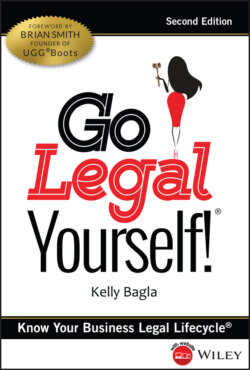Читать книгу Go Legal Yourself! - Kelly Bagla - Страница 15
Sole Proprietorship
ОглавлениеThe most common and simplest form of business is a sole proprietorship. Many small business owners launch their companies as sole proprietorships, in which they and their business are essentially one and the same. An individual proprietor owns and manages the business and is responsible for all business transactions, including its debt. If you want to be your own boss and run a business from home without a physical storefront, a sole proprietorship allows you to be in complete control. Sole proprietorships do have some advantages. They are quick and easy to set up, as no paperwork is required to be filed with the state, they do not require large amounts of money, and accounting is relatively simple. However, sole proprietorships have many disadvantages as well.
The biggest disadvantage is that there is no separation between the assets of the business and the owner's personal assets. This means that anyone who sues the business for any reason can potentially receive a judgment for the business owner's personal assets, such as cash kept in personal checking or savings accounts, the family car, or even the business owner's home. Another big disadvantage occurs if the sole proprietorship wants to borrow money. Because there is no separation between business and personal assets, many sole proprietors have to use their personal assets, such as their home, as collateral for a loan. If the business fails and the owner does not have enough money to pay off the loan, the lender can take the owner's home and sell it to get its money back. Needless to say, this type of ownership is the riskiest and, to make things worse, the courts do not see any difference between a sole proprietorship and its owner. So, when the owner passes away, the business ends.
